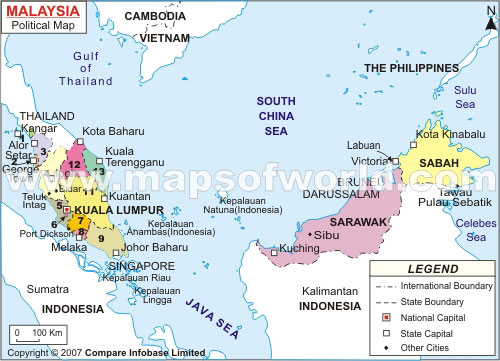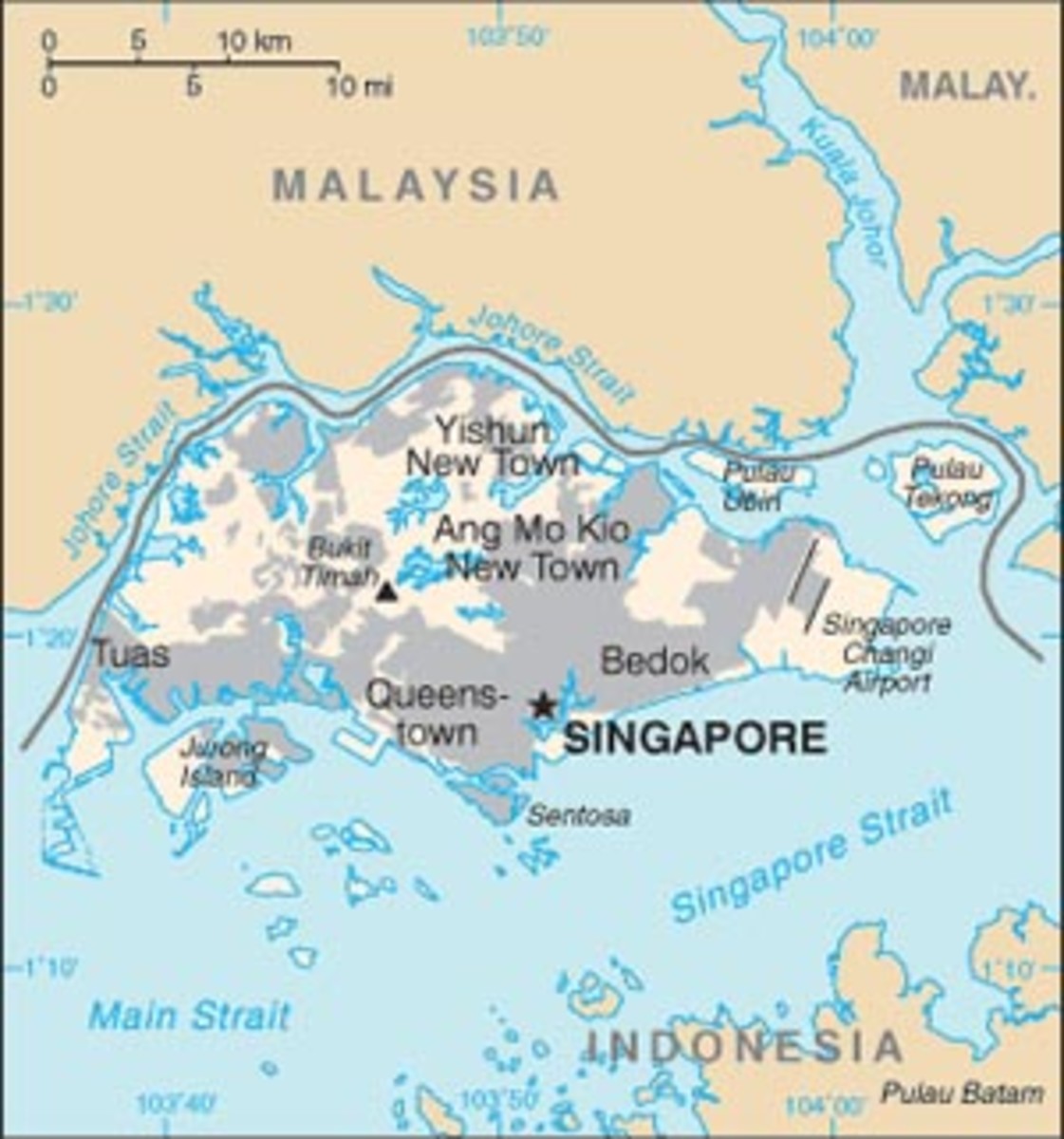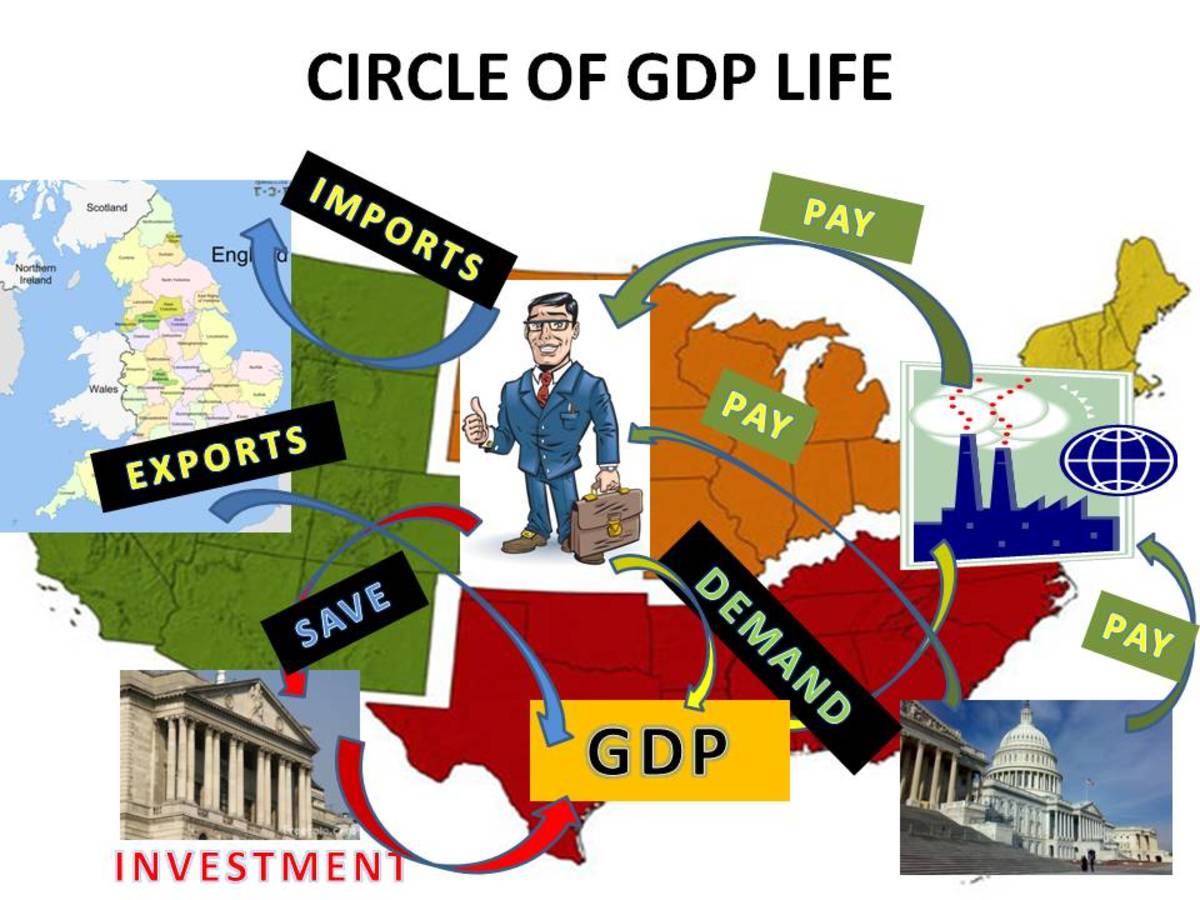Malaysia Political and Economic Outlook for 2011 and Beyond
Malaysia Flag

Malaysia's General Outlook 2011-2014
This hub takes a look at the political and economic outlook of Malaysia for 2011 to 2014. The main source of this outlook is the Economist Intelligence Unit (EIU). According to the EIU report filed for October 2010, the following highlights are forecasted for Malaysia's political and economic outlook for 2011 to 2014:
•
The Barisan Nasional (BN) coalition is expected to remain in power in the early part of the forecast period (2010-14). The BN has a sufficient parliamentary majority to pass most legislation unchallenged.•
The next general election must be held by April 2013. However, we believe that the BN will stick with tradition and call elections a year before its term ends, making early 2012 a possible date.•
Fiscal policy will be tightened as the government strives to balance its budget by 2020. Monetary policy will also be tightened as domestic demand remains healthy in the forecast period.•
The economy is expected to stage a strong recovery in 2010, growing by 6.8%. However, this relatively rapid acceleration mostly reflects the rebound from the contraction in 2009. Growth will average 4.9% a year during 2011-14.•
The annual rate of inflation is expected to average a subdued 3% in 2010-14. Government efforts to rationalise the country’s extensive subsidy scheme will exert an upward influence on prices in the forecast period.•
Despite the relatively fast pace of growth of merchandise imports compared with that of exports, Malaysia will continue to post substantial trade and current-account surpluses in 2010-14.
Where is Malaysia Located?
Malaysia is located in Southeast Asia between Indonesia and Thailand. Malaysia's geography is a bit odd in that the country's land is spread out between a peninsula and an island - the west section of Malaysia is attached to the southern tip of Thailand and the eastern section attached to Kalimantan, one of Indonesia's larger islands.
Malaysia's Political Outlook for 2011 and Beyond
According to the Economist Intelligence Unit, Malaysia's political outlook for 2010-2014 should be relatively stable in the near period of the forecast, but could encounter a modest threat in the later part of the forecasted time period.
From their research and expertise EIU reporters observed that in the past 50 years or so stability in Malaysia's political situation depended on three calming factors:
- the firm power enjoyed by the Barisan National coalition;
- the tight control the United Malays National Organization has exerted over the BN;
- the continued support of the Malay majority for the United Malays National Organization.
Yet, the March 2008 general election demonstrated that all three factors or onfluences weakened to some extent. Consequently, those traditional influences may prove unable to hold the Malyasia's political framework together for the forecast period through 2014. However, possible instability should not be expected to come from outside the United Malays National Organization, but rather from inside it. This possible result will be due to the fact that the main opposition party, the Pakatan Rakyat does not appear situated to draw sufficient support to be a threat, and the United Malays National Organization's determination to stay in power at all costs.
According to EIU experts, the ability to make or break the Barisan National coalition seems to be in the hands of political parties from Sabah and Sarawak since nearly one third of the representatives come from those two Malaysian states. Both Sabah and Sarawak are located on the island of Borneo. Due to growing dissatisfaction with the federal government the Barisan National coalition's Boreno powerbase is likely to erode which could cause an uprising within the coalition. The outcome from the 2008 parlimentary elections showed that the United Malays National Organization can no longer count on the support of the majority of Malays.
Malaysia's Economic Outlook for 2011 and Beyond
According to the Economist Intelligence Unit, Malaysia is expected to move to a sustainable growth path in 2011-2014. Rebounding from a negative growth rate in 2009, economic forecasters expect real GDP to average 4.9% per year. Data from the first half of 2010 showed the Malaysian economy expanded by 9.5% and it is expected to grow by 6.8% for the year.
On the expenditure side, private consumption and investment will remain the main drivers of growth in 2010-2014 and exports of goods and services are expected to grow by a rate of 9% a year for the same period of time.
According to EIU researchers, the services sector will be the the largest sector of the economy due to the government's aim to become a high-income nation by 2020. Even so, the industrial sector will still form a good size part of the economic outlook, but is expected to remain smaller than the services sector through 2014. The contribution of agriculture will be important as the production of palm oil will help raise incomes for rural families.
Even as imports continue to grow, Malaysia's balance of accounts will continue to tilt in a positive direction meaning Malaysia will continue to post trade surpluses. Malaysia continues to look for viable international trade partnerships that propel their economy forward.
Hubs About Malaysia
- Holiday in Malaysia, Pangkor Laut Resort
Pangkor Laut Island Located 1.6km off the West Coast of Peninsular Malaysia, Pangkor Laut is a secluded island which lies in the Straits of Malacca. This paradise island has a 2 million years old rain... - First Impressions of Kuala Lumpur, Malaysia
Earlier this week I spent two days in Kuala Lumpur. I flew in on Sunday afternoon and out again on Tuesday night. So I don't claim to know the place at all well, but here are my first impressions. - Best Paying Hot Jobs in Malaysia
Malaysia is one of the growing economies among the Asian countries. This Southern East Asian country is spread over an area of 329,845sq km with Kuala Lumpur as its capital. The recession had slowed... - Traveling from Singapore to Malaysia
From Singapore, many airlines fly to Malaysia's airports, particularly to cities like Kuala Lumpur (the capital of Malaysia) and to the state of Penang. Flights to smaller cities like Ipoh are more restricted... - Cost of living in Malaysia
Before moving to malaysia, i tried to get a clear picture about the cost of living in Malaysia. But I wasn't able to get a clear idea through online materials. I was at a disadvantage during the salary... - Redang Island Beach Resort, Malaysia
Redang Beach Resort, on beautiful Redang Island, Beautiful Marine Park, Beaches, Islands, schools of beautiful colorful fishes swim as you dive into the waters. - Malaysia -Top Travel Destinations, Tourist Spots and...
Malaysia is a country, which is blessed with enthralling natural beauty along with all the innumerable tourist attractions. Malaysia Tourist Destinations is also about getting the taste of the local flavor... - Kelong Fishing, Kelong Stay in Malaysia
Fishing spots in Malaysia for Kelong Fishing and Deep Sea Fishing to be explored. Fishing tips when going on a Kelong Fishing Trip and Stay. - Genting Highlands in Malaysia
The best time to visit Genting Theme Park and Hotels in Malaysia, and what to expect if going there to make your time worthwhile and enjoyable.








